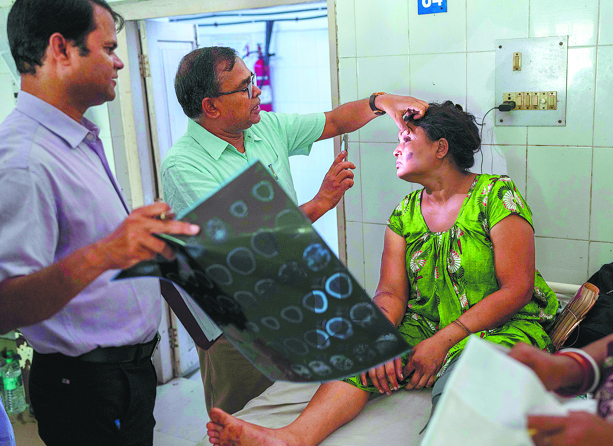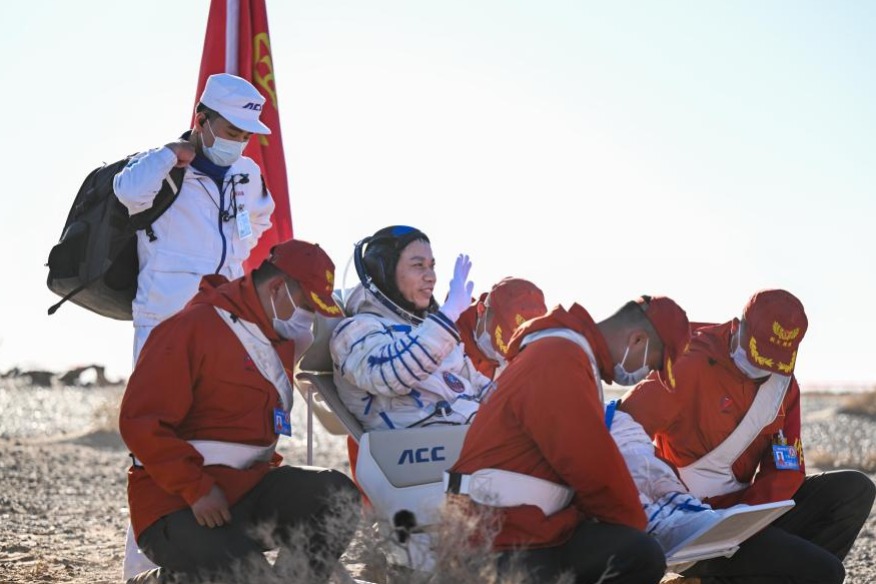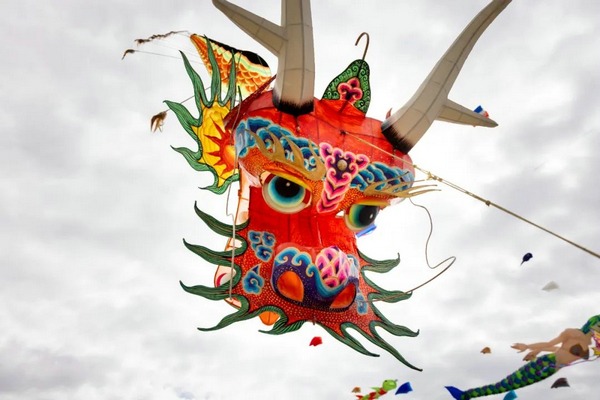After accident, trauma infiltrates survivors' lives
By ARUNAVA DAS in Kolkata, India | China Daily Global | Updated: 2023-07-07 09:12

Even though many Indians who suffered injuries in last month's horrific triple train crash are recovering, there are many survivors who are showing signs of post-traumatic stress disorder, doctors said.
They often wake up after dreaming about the accident, said a nurse in the surgery department, adding that the attendants are keeping a close watch on the patients.
One survivor, 21-year-old Saidul, has returned to his village in West Bengal state. He was traveling in an unreserved coach on the Coromandel Express, which was involved in the June 2 accident at Bahanaga Bazar station in Odisha state.
Saidul was among the lucky few in his compartment. He was pulled out relatively unharmed from a pile of bodies, and had only a few superficial injuries. But his trauma starts the moment he shuts his eyes — the sight of mutilated bodies and severed limbs returns to haunt him. Saidul's elder brother said he would jump out of bed, screaming like a madman.
"Anxiety and depression are common after such a disaster," said Ashis Mukherjee, who teaches psychiatry at Nil Ratan Sircar Medical College in Kolkata. "Not only passengers, even those involved in rescue operations may suffer. In some cases, PTSD may set in. They require a lot of care and support from family and friends. Such traumas can lead to alcoholism or drug addiction."
Sabyasachi Mitra, a psychiatry consultant at the Calcutta Medical Research Institute in Kolkata, said: "Some may start smoking to try and soothe their nerves. All this will not help and family members need to be very careful to keep them away from such addiction."
Most survivors will gradually recover on their own, but some may require professional help, Mitra said.
In addition, relatives of those killed should be kept away from survivors because they are likely to break down when they meet a survivor. "This needs to be avoided, or the survivor may start feeling guilty for no reason at all," he said.
Consultant psychiatrist Siladitya Ray believes most survivors will get over their trauma soon enough, but 20 to 30 percent are likely to suffer from PTSD.
Haunting sufferings
"Those who are too emotional or mentally weak will suffer the most. Some of them may even stop traveling by train... A few would even panic when they have to cross a road. They could finally confine themselves inside their homes, giving up their jobs or seeking premature retirement," Ray said.
"Such people will have to be continuously told that accidents do happen and they were in no way responsible for what took place. They will have to be goaded back to normal life and made to think about positive things. If all else fails, they can seek professional help."
Doctors at SCB Medical College in Odisha, where the injured were receiving treatment, are offering counseling to patients. It is natural for such an accident to have severe impact on the survivors, a doctor said.
"Many were found to be severely stressed, fearful, panicked at times and silent," Jashobanta Mahapatra, associate professor of the clinical psychology department at the hospital, was quoted by news agency Press Trust of India as saying. "We are counseling them and talking to them along with their family members."
The hospital has set up four teams to counsel survivors. "Each team comprises a psychiatrist, a psychologist, a social worker and one or two members of the patient's family," Mahapatra said.
A 23-year-old man, whose limbs were broken in the accident, has virtually lost sleep. "He fears to close his eyes as scenes of the accident flash before him," said a doctor, adding that the man was rescued from under a seat where he had been trapped for three hours.
Another young man, who lost his close friend, often wakes up from his sleep calling out his friend's name.
"These patients cry on seeing their condition, while some others laugh hysterically," said Mahapatra, adding that these symptoms can be cured with time.
























